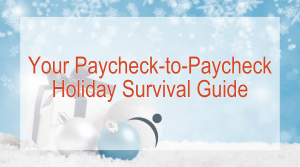Watch Out For These Back-To-School Scams
The back-to-school season is a busy time for families—and unfortunately, for scammers too. As students, parents, and teachers gear up for a new year, fraudsters look for opportunities to steal money and personal information. In this blog, we share some of the most common back-to-school scams to be aware of and how you can protect yourself.
Too Good To Be True School Supply Deals
Watch out for online ads offering huge discounts on popular school items like backpacks, sneakers, calculators, and laptops. It may look tempting but could lead to fake websites designed to steal your money or personal details. These sites often mimic real brands or retailers and may even have checkout pages that look convincing. Before buying, double-check the website’s URL, look for reviews, and avoid shopping through random social media links or unfamiliar sites. Remember, if it seems too good to be true, it probably is.
Tip: Stick to reputable retailers and be cautious of ads that promise big name items at unbelievably low prices.


Phishing Emails Claiming to Be from Your Child’s School
Scammers often send emails that look like they’re from a school district or teacher, asking parents to confirm personal information, make a payment, or click a link to access a “school document.” These emails may include logos and language that appear legitimate but actually lead to phishing websites or malware downloads.
Tip: If you’re unsure if you’ve received a legitimate message, verify the sender and don’t click on any suspicious links.
Scholarship and Student Loan Scams
As older students search for financial aid, scammers may offer “guaranteed” scholarships or loan forgiveness in exchange for an upfront fee or ask for sensitive data like your Social Security number. These offers may come through email, mail, or social media, and often include urgent language to pressure quick action. According to the Federal Communications Commission, some scammers are even using AI to create “deepfakes” of students’ and teachers’ voices.
Tip: Legitimate scholarships don’t charge application fees, and government loan forgiveness programs will never ask you to pay to apply. You are also not required to make loan payments over the phone.


Tech Support Scams
With many students using laptops and tablets for schoolwork, scammers sometimes pose as tech support agents, claiming your child’s device has a virus or software issue. They may call or email unexpectedly, urging you to download remote access software or pay for unnecessary repairs.
Tip: Never trust unsolicited tech support calls or emails. If you suspect a problem with a device, go directly to the manufacturer’s website or support line.
Dorm and Rental Scams Targeting College Students
Scammers often post fake rental listings for dorm rooms, apartments, or houses… especially in college towns during back-to-school season. They may ask for a deposit or first month’s rent upfront to “hold the unit,” but once the money is sent, the listing disappears and the scammer vanishes. In some cases, the rental may not exist at all, or the scammer has no connection to the actual property.
Tip: Never send money or personal info without seeing the place in person (or through a verified virtual tour), and be wary of landlords who rush you or refuse to meet. Always use reputable rental platforms or go through your school’s official housing office if possible.

Stay Safe This School Year
Back-to-school season is a great time to talk to your family about online safety. Remind kids not to share passwords, avoid suspicious links, and come to you with anything that seems off. As a parent or guardian, regularly monitor your accounts and report anything suspicious. If you spot a scam, report it to the FTC at ReportFraud.ftc.gov. It’s also a good habit to regularly monitor your accounts through Digital Banking.


